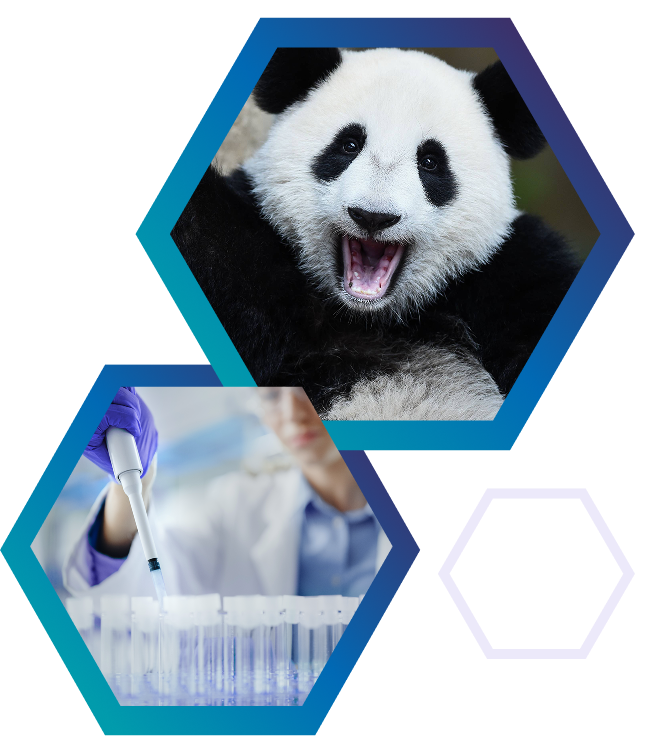How to Choose the Right Assay Kit for Cell Signaling Studies
Cell signaling research uncovers the mechanisms behind cellular communication, disease progression, and therapeutic interventions. Whether you’re a student beginning your first cell signaling project or a lab manager evaluating options for your team, selecting the right assay kit can be the key to reliable, reproducible results. With so many choices on the market, it’s essential to prioritize factors that align with your research goals, experimental design, and lab resources.
What to Consider When Choosing an Assay Kit
- Specificity and Sensitivity
The accuracy of your data depends on choosing an assay kit for cell signaling with high specificity and assay sensitivity for your target molecule. For example, if you’re measuring nucleotide second messengers like cAMP or cGMP, options like the Cyclic AMP Direct ELISA Kit or the Cyclic GMP Direct ELISA Kit provide reliable results for critical signaling pathways. Similarly, the cGAMP ELISA Kit series is an excellent choice for studying immune signaling pathways and is twice as sensitive as its nearest competitor.
- Addressing Matrix Interference
One challenge in conducting cell signaling studies is matrix interference, where compounds in the sample matrix affect assay performance. Arbor Assays’ kits, such as the Endothelin-1 (ET-1) ELISA Kit, are designed to identify and minimize sample matrix interference, ensuring cleaner and more accurate data.
- Ease of Use and Sample Compatibility
When choosing an assay kit, ease of use and sample compatibility are critical for ensuring reliable results across various research applications. Arbor Assays designs kits with straightforward protocols that reduce the likelihood of user error and accommodate diverse sample types.
For instance, the Adrenocorticotropic Hormone (ACTH) ELISA Kit precisely measures hormone levels in human plasma, while the TNF-alpha Mouse ELISA Kit is compatible with several mouse sample types, including serum, plasma, and tissue culture media (TCM). Other kits, like the Nitric Oxide (NO) Colorimetric Detection Kit, feature short incubation times of just 5 to 25 minutes with room-temperature workflows. This kit is species-agnostic and compatible with a wide variety of sample types, including water, serum, plasma, urine, saliva, tissue culture media, lysates, and buffers, making it suitable for both new researchers and experienced lab teams handling complex sample matrices.
Additionally, Arbor Assays provides options to match your lab’s workflow needs, from ELISAs with rapid 1.5 to 2.5-hour protocols to kits suitable for overnight incubations, giving you flexibility without compromising sensitivity or reliability.
- Dedicated Technical Support
When selecting an assay kit for cell signaling research, having access to reliable customer service and technical support can make all the difference in ensuring successful experiments. It is important to choose an assay supplier committed to personalized assistance, whether you’re optimizing protocols, adapting workflows to new applications, or troubleshooting unexpected results.
The Arbor Assays’ expert team is readily available to provide guidance and address your questions, helping you achieve reliable, reproducible results. With quick response times and a customer-focused approach, we ensure your research stays on track without unnecessary delays. This dedication to service is part of why so many researchers trust Arbor Assays for their cell signaling studies.
- Scalability and Versatility
For labs running multiple experiments or exploring diverse signaling pathways, scalability and versatility are critical. Many of Arbor Assays’ kits, like the Protein Kinase A (PKA) Colorimetric Activity Kit and the PGE2 Multi-Format ELISA Kit, are designed to deliver consistent performance across species and sample types, making them suitable for a wide range of research applications.
Our 96-well plate formats are ideal for both single-sample studies and high-throughput instrumentation, allowing labs to scale up efficiently without sacrificing data quality. Additionally, bulk packaging options ensure cost-effective solutions for growing research needs. This flexibility makes Arbor Assays kits a reliable choice for labs of all sizes and focuses.
Why Choose Arbor Assays for Your Cell Signaling Research?
Arbor Assays provides high-quality immunoassay kits tailored to a wide range of cell signaling applications, from cyclic nucleotides to hormones and cytokines. Our products are rigorously tested to minimize sample matrix interference, maximize assay sensitivity, and ensure reliable results across diverse sample types. With a comprehensive portfolio and a commitment to supporting researchers at every step, Arbor Assays empowers scientists and students alike to achieve reproducible outcomes with ease.
Explore our full cell signaling product range in the table below:
| Kit Name | Cat. No. | Popular Applications |
|---|---|---|
| 2′,3′-Cyclic GAMP ELISA Kits | K067-H | Immune signaling, antiviral research |
| 2′,3′-Cyclic GAMP STING-Based FRET Detection Kits | K081-F | cGAS-STING pathway research, cancer immunology |
| 3′,3′-Cyclic GAMP ELISA Kit | K073-H | DNA damage response, STING signaling |
| Adrenocorticotropic Hormone (ACTH) ELISA Kit | K072-H | Neuroendocrinology, stress response research |
| Cyclic AMP Direct Colorimetric & Chemiluminescent ELISA Kits | K019-H/ K019-C | Signal transduction studies, GPCR research |
| Cyclic GMP Direct ELISA Kit | K065-H | Cardiovascular signaling, nitric oxide pathways |
| Endothelin-1 (ET-1) ELISA Kit | K045-H | Vascular biology, hypertension studies |
| Nitric Oxide (NO) Colorimetric Detection Kit | K023-H | Oxidative stress, immune response |
| PGE2 Multi-Format ELISA Kit | K051-H | Inflammation, prostaglandin signaling |
| Protein Kinase A (PKA) Colorimetric Activity Kit | K027-H | Enzyme activity, cAMP-dependent signaling |
| TNF-alpha Mouse ELISA Kit | K091-H | Cytokine signaling, inflammation, autoimmune research |
For specifics on how fellow scientists have used our assay kits for Cell Signaling research, visit our publication database.
Featured Products
-
In Stock
2′,3′-Cyclic GAMP ELISA Kit
$646.00 – $2,581.00The DetectX® 2',3'-cGAMP ELISA Kits measure 2',3'-cGAMP in tissues and cells.
-
In Stock
Adrenocorticotropic Hormone (ACTH) ELISA Kit
$580.00 – $2,315.00The DetectX® Adrenocorticotropic hormone (ACTH) ELISA Kits quantitatively measure ACTH present in plasma samples.
-
In Stock
Protein Kinase A (PKA) Colorimetric Activity Kit
$612.00The DetectX® Protein Kinase A (PKA) Activity Kit quantitatively measures PKA activity in a variety of samples.



